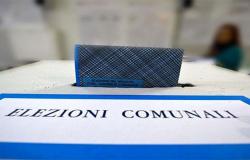The last thematic event of the RinnoviAmo Forlì civic list on the topic took place yesterday, Wednesday 5 June, at the Asyoli club in Forlì, with a large participation. “Forlì and Romagna at the center of climate change. Defend the city from future flood events.”
The meeting was opened by Michele Fiumi, spokesperson for the listwho expressed the concern of citizens of the areas affected by the May 2023 disaster: “The municipality did not move a leaf to coordinate the on-site activity of the technicians of the other bodies involved either during or after the flood. Little information, confused and uncertain, no task force created. The lack of coordination with local authorities is incomprehensible and absurd. We note with dismay that there are no ideas and indications from the Mayor and the Council regarding the delicate topic of hydrogeological reorganization, not even on the desire to update the current planning with a new PUG and related Strategy for Urban and Ecological Environmental quality (SQUEA) .”
The RinnoviAmo spokesperson then continued: “Is it possible that we continue to maintain that the sewage system of this city is all ok, when with every slightly intense storm entire streets and neighborhoods flood again? Why is there no money in the investment plan to upgrade the dilapidated and outdated sewage system? Why hasn’t action been taken to adapt the Civil Protection and Emergency Plan after a year?” Fiumi then closed his speech by underlining, once again, the shortcomings and shortcomings shown by the council and showing a series of concrete proposals for this delicate issue.
Among these, he included: the creation of a reconstruction department and a task force of municipal technicians to monitor decisions regarding the necessary public works, the census of people still outside their homes (with financial support from the municipality for those who do not have the money to return home), the implementation of a new civil protection and emergency plan. We then have: the adaptation of the urban plan (with a reduction in the anthropic load on the affected areas), the creation of a municipal office that carries out an information coordination role and an ad hoc municipal fundraiser for the victims.
The meeting continued with the moderation of Francesco Marino (engineer and candidate councilor of RinnoviAmo Forlì). There followed the interventions “Hydraulic Safety of the Territory” with Prof. Stefano Orlandini (Professor of Hydraulic Constructions, University of Modena and Reggio Emilia) and “Prevention and mitigation: the integrated approach” with Andrea Nardini (hydraulic engineer, PhD Systems Analysis, PhD in river geomorphology, international consultant, co-founder of the Italian Center for River Redevelopment – CIRF – and its first technical director, university professor).
Stefano Orlandini opened the event with some of the figures of the disaster, extraordinary, but not enough to explain the damage. A detailed analysis of the event is necessary, according to the scholar, to understand the effects on the geological and river systems. The geological response of the mountain slopes, moved due to weighting and their reduced resistance to sliding, is not surprising, but the collapse of 23 banks is not completely justified by the hydrological responses of the river basins. Even considering that a flood that lasts over time can cause the collapse of the banks due to excess saturation. Ultimately, the event does not entirely justify the widespread hydraulic insufficiency of the waterways. The analysis of the fractions of precipitation that contribute to river floods confirms the decisive role of preceding precipitation. The flows observed, however rare, should be disposed of in an area with an optimal level of hydraulic risk mitigation. Orlandini concluded his speech with a specific appeal: “The Romagna event ultimately imposes the need to re-accredit the hydrological and hydraulic knowledge in our country in order to ensure the stability of the geological and river systems with respect to extreme events.”
The intervention of Andrea Nardini he offered a solid reasoning on the concept of safety and risk, showing with clarity and intellectual honesty the limits of common thinking. You then clarified what the paradigm shift necessary to address the risk of flooding entails. We must give up the dangerous chimera of seeking safety through hydraulic works; we must aim to reduce the risk by balancing the enormous costs. Reduce the danger, but not with works that increase the already considerable fragility, but rather by strengthening the widespread retention capacity of the basin. Nardini proposes a large river corridor, combined with the reforestation of the basins, rather than an investment in expansion tanks. This would not, however, be sufficient. “We must also intervene in the city because it is naïve to think that “the water won’t go there. Above all, this means reducing our vulnerability: adapting to real hydro-cities.” Nardini underlined. The expert was also keen to clarify how this change must not be “imposed from above”, indicating how it must be the result of an alliance-process with all the actors in the area.
In the second part of the meeting we moved on to questions collected in collaboration with the Unitary Committee of Mud Victims (whose president Alessandra Bucchi, present in the audience, spoke). The meeting continued with questions from the public and answers from the experts, with the moderation of Francesco Marino who concluded the meeting with a methodological observation “We have seen that there is no single solution to complex problems or at least that multiple proposals must be thought through and compared to arrive at the most reliable ones. We have drawn up a program starting from the needs, which are still unresolved, trying to define state-of-the-art programmatic points. These proposals do not claim to be the best but at the moment they are the main ones that have emerged. We have tried to confront our political opponents and, having received no response to our appeals, we have continued this discussion with experts and citizens. For us this is the true sense of civic reality and we are satisfied to have brought it as a proposal on 8 and 9 June”.
The event finally closed with the speech of centre-left mayoral candidate Graziano Rinaldini.

Candidate groups of RinnoviAmo Forlì: sport as overcoming barriers in the lives of the people of Forlì
“The city of Forlì can be summed up as a place where sport is an important part of everyday life. In fact, it is not to be considered just a mere physical practice, but can represent a real catalytic action for social and individual change. This activity undoubtedly brings countless benefits. I can testify that, from my experience as a person who carries out physical activity, I have had the opportunity to see how sport is a very powerful weapon for social inclusion and that it breaks down any obstacle even between people of different ages and cultural backgrounds. Not only that, from my experience as a person with disabilities I can state with certainty how it can eliminate not only physical barriers, but also mental ones.” Thus Matteo Gironi candidate for councilor on the RinnoviAmo Forlì list, in support of Rinaldini as mayor.
“A further benefit connected to the elimination of personal and physical barriers also concerns the formation of values such as fair play, solidarity and mutual respect. All rules that can contribute to personal growth and social cohesion between different groups of people. Furthermore, it is possible to educate the new generations, and not only, to be more aware and responsible citizens. In conclusion, we know how much sport contributes to maintaining an optimal level of mental and physical health. Sporting activity, in fact, certainly proves to be effective in reducing stress, improving the general well-being of citizens, with the possibility of making the local community even more resilient in the face of any problems to be faced. We know how Forlì has always been a city where sport is considered fundamental, a point of reference in the regional sporting panorama. In continuity with what I stated previously on architectural barriers, for a truly cohesive and inclusive city we should contribute in an even more visible way with activities that encourage true dialogue and the real solution to make society a better place. As a candidate for RinnoviAmo Forlì I will work to ensure that these projects are brought to fruition” concludes Gironi.







